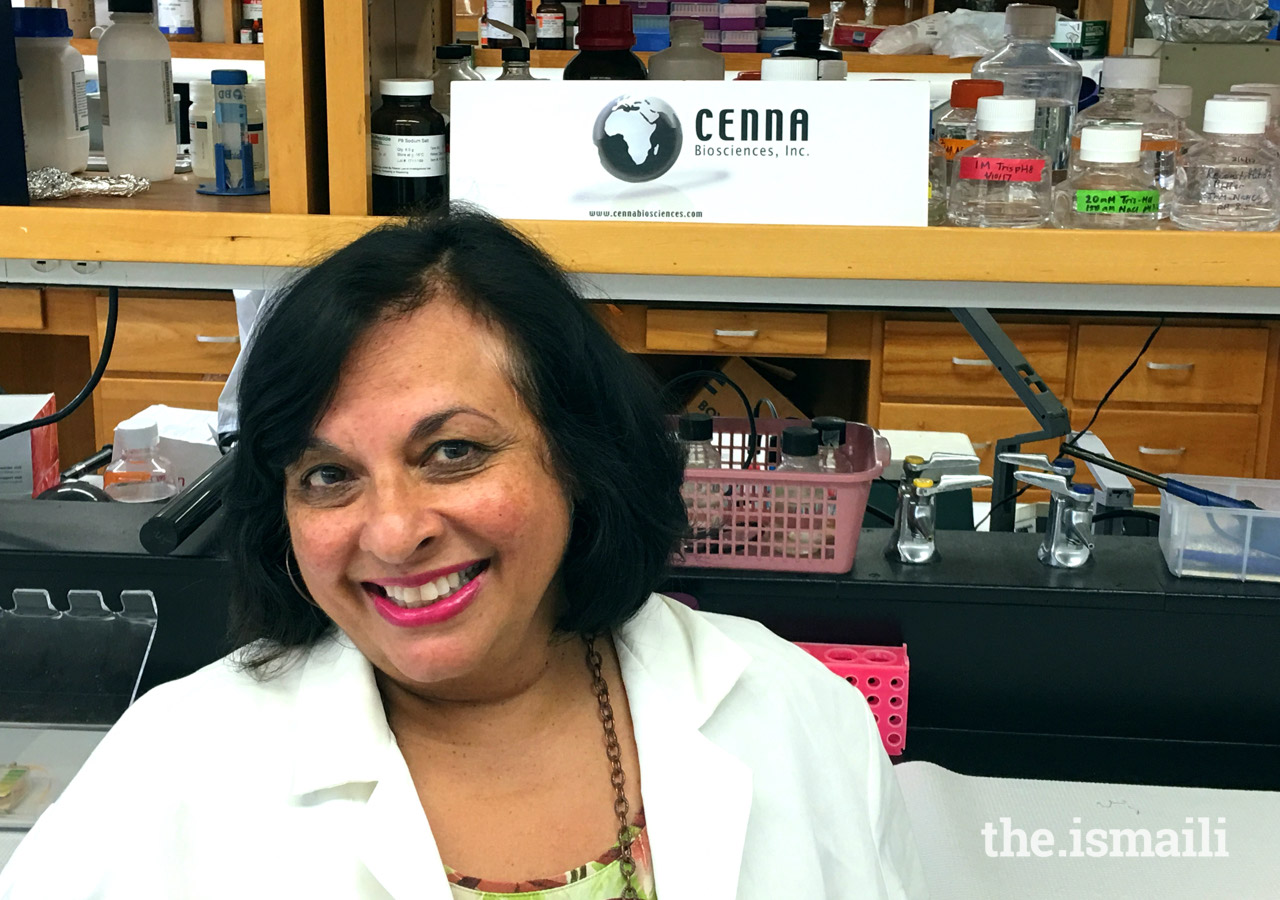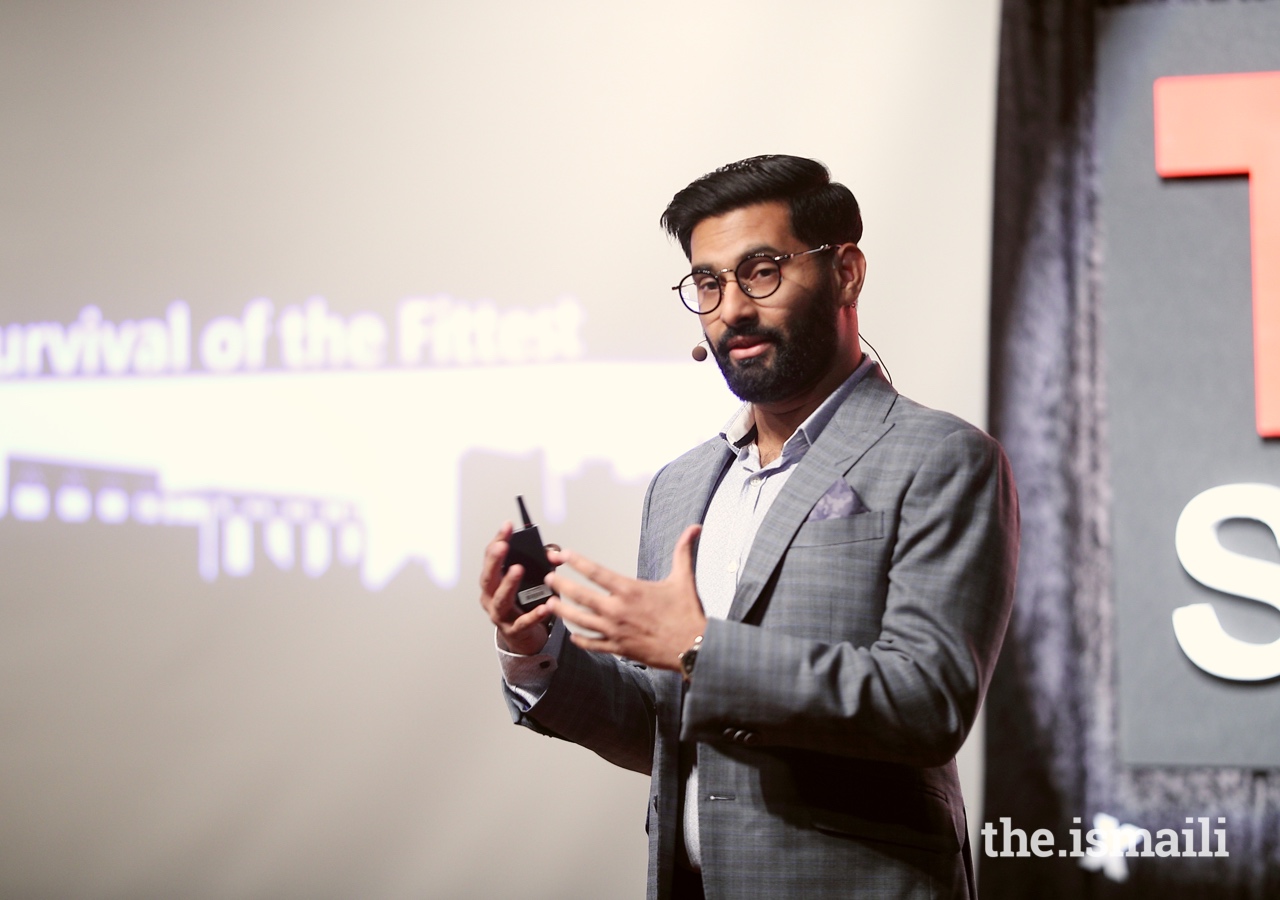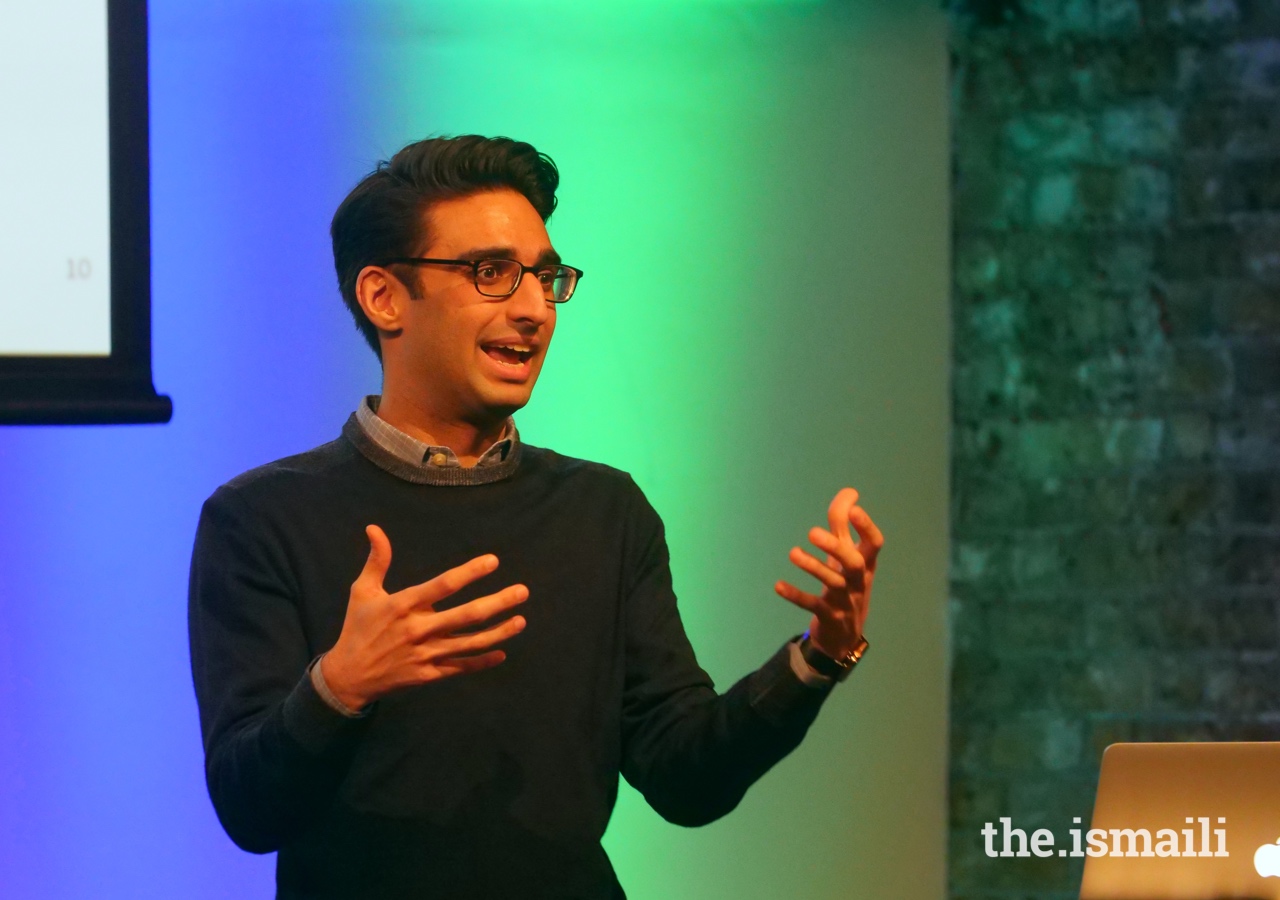Developing a drug for Alzheimer’s Disease
nazneen_usa.jpg

It is estimated that by the year 2050 there will be about 80 million people over the age of 65 in the US, of which almost half will be over the age of 80.
One growing concern with longer life is Alzheimer's Disease (AD), a progressive neurodegenerative disorder which results in memory loss and impairs cognitive function, accounting for 60-80% of all dementia cases. Age is a risk factor for AD, which affects 1 in 10 people over the age of 65. This ratio rises to 1 in 2 individuals by the age of 90. At present, there is no disease-modifying drug for AD. Combatting these staggering statistics and the scourge of such diseases is of major concern to healthcare professionals and scientists.
“We are all living very much longer these days and many of us in the developed world can expect to live to be 90,” said Dr Nazneen Dewji, co-founder of Cenna Biosciences Inc, a private biopharmaceutical company in La Jolla, California. “But the developing world is also catching up and in the coming years will be the area of the world with the greatest increase in numbers of people affected with Alzheimer’s disease. This will place an enormous emotional and financial burden on families caring for loved ones with the disease.”
Dr Dewji and her colleague, the late Dr S.J Singer, founded Cenna in 2006, to translate their academic research at the University of California, San Diego (UCSD) into a therapeutic response to AD. As a professor in the Department of Medicine at UCSD, Dr Dewji has developed a novel approach to inhibit the underlying cause of the disease, the production and accumulation in the brain, of ß-amyloid (Aß). Her proprietary patented technology is different from any other approach by others to inhibit the production of Aß and addresses the many failures in the field. Cenna is developing several peptides and small molecule compounds as disease-modifying drugs for the prevention and treatment of AD. Cenna has been funded exclusively by grants from the National Institutes of Health and other government and non-government sources.
If all clinical trials are successful, it could lead to product licensing, manufacturing, distribution, and sales through appropriate partnerships and joint ventures. An effective disease-modifying therapeutic that slows progression or prevents AD will have significant societal benefits related to the quality of life for an ageing population.
Artificial intelligence for diagnosis and treatment
sahirzeeshan_usa.jpg

A new revolution is underway with the use of artificial intelligence (AI), which is already being utilised for self-driving cars, various algorithms, and robots, as examples.
Dr Sahirzeeshan Ali, Research Scientist at the Center for Computation Imaging and Personalized Medicine at Case Western Reserve Medical University and the Seidman Cancer Center, is conducting research on using AI to examine pathologies in patients, such as cancer cells. By using data from thousands of patients, computer software is being designed to recognise patterns and compare diagnoses and treatments to outcomes, thus being able to model and predict the best course of action for a particular patient.
Radiologists currently make decisions based on their training, perception, and experience, but the mathematical relationships that AI can detect appear to be better at diagnosing and suggesting optimal treatments. Studies in the UK, perhaps the leader in the field of AI for medicine, suggest one in five patients have been misdiagnosed, representing 12,000 scans annually. Unnecessary surgeries could have been prevented at a saving of millions of dollars to the National Health Service.
As Dr Ali said, "Every patient deserves to have his or her own equation, and AI is going to lead to greater personal treatment plans rather than generalizing treatment based on an average patient with particular symptoms or cells visible only to the naked eye."
Dr Ali’s TEDx talk on this topic can be viewed here.
Countering the risk of cyber threats
kabir_usa.jpg

The fight against cyber threats and data breaches in security create a major concern for companies and consumers, due to loss of privacy of personal information that is accessed.
Data intrusion and prevention is of paramount concern, and most companies have software to detect such invasions, often belatedly. To counter such risks, Kabir Barday from Atlanta founded OneTrust in 2016. His company’s software is designed to help companies comply with global data protection regulations, including hundreds of data breach laws. The software workflows flag risks in the event that a company is collecting large amounts of personal and/or sensitive data, potentially lowering the risk and cost of breaches. In just three years, OneTrust has become the most widely-used privacy, security, and third-party risk mitigation company in the United States.
Kabir received the EY Entrepreneur of the Year Award in the Emerging Technology Category in 2019 and OneTrust has been named as one of Fast Company’s World’s Most Innovative companies. It also earned recognition as Atlanta Business Chronicle’s #1 fastest growing company. It now has 1,000 employees and 3,000 major corporate clients around the world.








